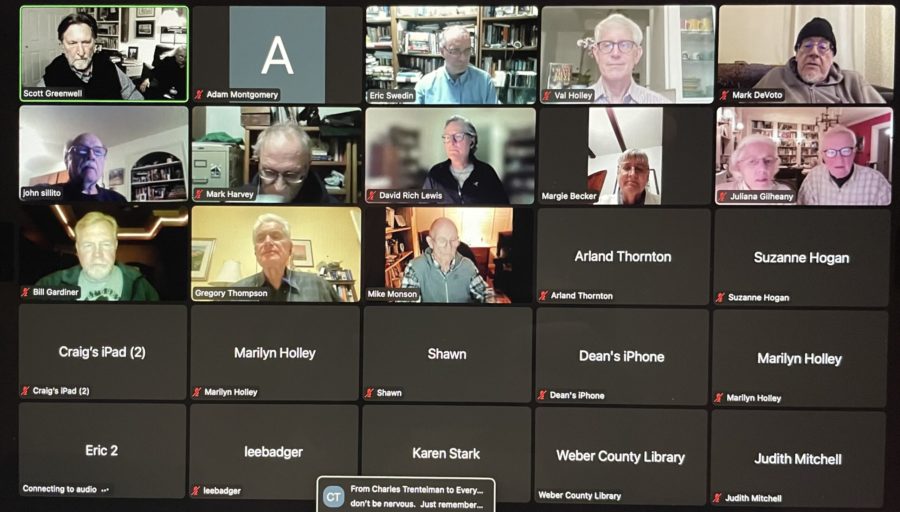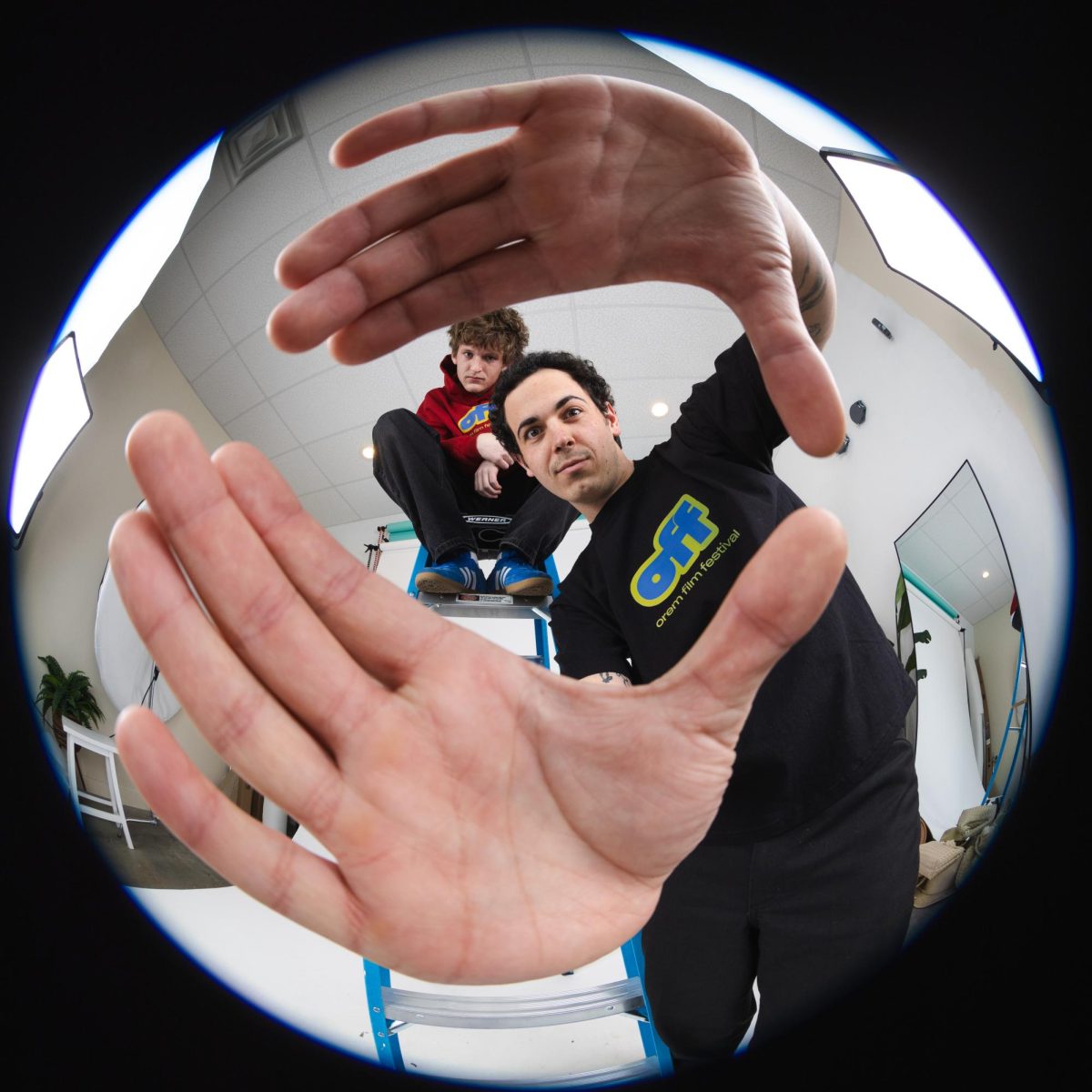The sun shone on the faces of an audience with tent-shielded eyes fixated on Forrest Gander, as he explained to his listeners the connections he makes to the real world through his poetry.

The event was the first of the “Visiting Writers and Open Mics” series, hosted by the Weber State University English Department, and was the only one that’ll be in person.
The audience, loaded with books and journals and noticeably lacking cell phones, listened as Gander’s writing voice intertwined with his actual voice — one he described as similar to learning how to dance.
“I think, for a lot of people, you find your voice the same way you learn to dance — by imitating other people and then slowly figuring out these things that are distinctive about these imitations that are your own,” Gander said. “The longer that you do anything, the more you’ll be comfortable at it, which gives you the confidence to be more exploratory. Then, your voice begins to come to you.”
Long before he became a Pulitzer Prize winner in 2019, Gander had many trying experiences. In high school, he felt as if he was a “hot poet,” but when he got to college, he received harsh criticism that was pivotal to his future: He was told his poetry was terrible.
Gander said that moment wasn’t hurtful or embarrassing but was instead encouraging. It reminded him that he couldn’t become complacent with his ability and that it was necessary for him to learn more about the art of poetry.
“I needed to inform myself about this art,” Gander said. “Not everything I write is great because I’m writing it. And I began to read a lot more poetry to get better.”
Each time Gander set out on a new poetic journey, he did so intending to make it better than the last poem he had written. He described it as “doing something better than I’d ever have done before.” That was his motivation: not money or fame, but rather self-improvement.
Of course, fame eventually did reach him, but instead of continuing trends that people loved, he set out to never write the same thing twice.
Gander said he started to get praise and more attention, but he didn’t want to keep writing the same thing in a different way.
“I think that’s what has kept my work from getting boring.” Gander said.
Originally from Barstow, California, this journey has allowed Gander to travel around the world, become an award-winning writer and reach a high stature of fame. However, it’s the connections Gander has made that have stood out to him more than anything. He met his wife through poetry along with lifelong friends and has created everlasting memories, and that is what he’ll reflect on most when he eventually decides to step away from the art.
The event, originally scheduled to be inside of Elizabeth Hall, was moved outside, the Wasatch Mountains providing a scenic backdrop.
Abraham Smith, WSU professor and co-director of the creative writing program, was dismayed that the ongoing COVID-19 pandemic continues to wreak havoc on what was once considered normal, but his mood was lightened by how intrigued and focused the audience was.
“It means the world. I mean, that’s the nature of poetry done well… That was a really beautiful thing to see a crowd of folks that focused,” Smith said. “Forrest Gander is one of the great living poets of not only America but of earth.”
The next Visiting Writers event will be virtual readings from WSU alumni on Oct. 12.


















